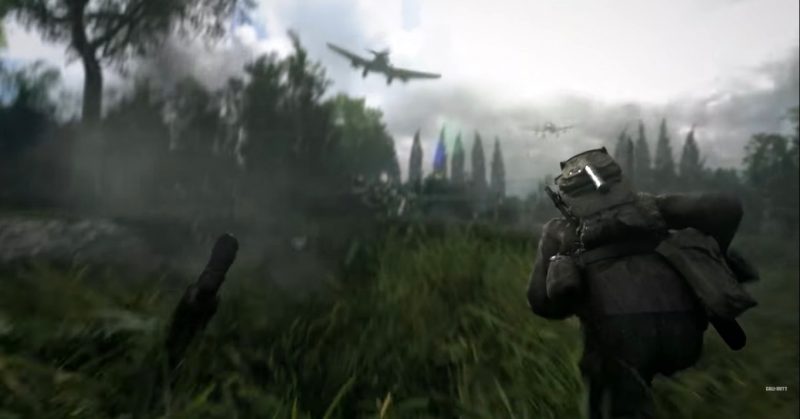For nearly a decade, fans of the Call of Duty franchise have waited for the first-person shooter series to return to its World War II roots. Recently, Activision announced that the next game in the series will give them exactly what they wanted. The next edition of the venerable series will be titled “Call of Duty: WWII.”
Over the past several years, the series has been moving ahead in time, from the Modern Warfare games that were set in the near future to Infinite Warfare which takes place in space and includes drones, robots, and rocket packs. Each successive version of the series makes less money than the last and Activision finally recognized that fans were attracted to the WWII setting and not to the futuristic action of the latest releases. The historical accuracy and cinematic scope of the presentation won over thousands of fans. The same criticism, leaving the historical accuracy of early titles, also led Electronic Arts to take another classic FPS series, Battlefield, back to its original concept: World War I.
It is possible that this game will be the biggest-selling historical entertainment title ever released. Academically, historians are more interested in historical games than in just nitpicking about their accuracy. They look to see where the public’s interest lies, how they interact with the themes and ideas in the games. Historians analyze how history gets represented in games, how people respond to the worlds presented in the games and why certain historical settings get used in particular ways are all subjects for academic study.
While the idea of a historian examining a game like Call of Duty might seem unusual to those unfamiliar with the profession, these games are highly influential in the culture and in the economy, so historians who ignore them are missing out on a big opportunity.
Adam Chapman, the senior lecturer at the University of Gothenburg and author of “Digital Games as History,” believes that historical games are now one of the most successful forms of popular historical media. Millions of people are interested in the past, so historians have an obligation to take the games, the players, and the history seriously and look at the implications. Since the games are similar to film and television, they can communicate a lot of information visually. They add life to history which makes them very engaging.
The critical and commercial success of Battlefield 1 sets a clear precedent showing a strong market for this type of historical game. EA Dice, which developed Battlefield 1, is said to have spent months researching WWI, the battles, weapons, strategies, technology, and geography when making the game’s environment. Ubisoft, for their part, have used historical figures in their Assassin’s Creed games. “Kingdom Come: Deliverance” is an upcoming game that is promising to present an accurate portrayal of Europe in Medieval times.
Developers have seemed to learn that historical games have strong appeal as they tap into players’ shared cultural consciousness. It might seem callous to “play” with tragic and/or violent historical events, the level of interactivity these games give players is a great opportunity to help players develop empathy and understanding. Of course, sometimes games get it wrong sometimes. While “Battlefield 1” was praised for the way it presented the loss of human lives in WWI, the marketing often seemed disconnected from the material. Inappropriate hashtags were added to screenshots and attempts at creating viral memes that were uncomfortable, given the source. Some may say that these incidents are evidence that games are not mature enough for historians to study but others argue that they are proof that an academic conversation needs to be occurring around these games.
Chapman believes that games afford people with the opportunity to experience and explore history. They allow people to explore historic sites and engage in re-enactments of historical events.
It is not the place for historians to tell people how they should enjoy their gaming activities. Instead, they should be examining how people interact with history and learn the implications of those interactions, The Guardian reported.
Currently, there are conferences and courses for the purpose of exploring history in games. A popular series of videos presents historians discussing how history is presented to players in games and how the players respond.
More dialogue is needed on the subject. Historians need to interact with games to bring a fresh approach to history for the masses.
https://www.youtube.com/watch?v=D4Q_XYVescc
